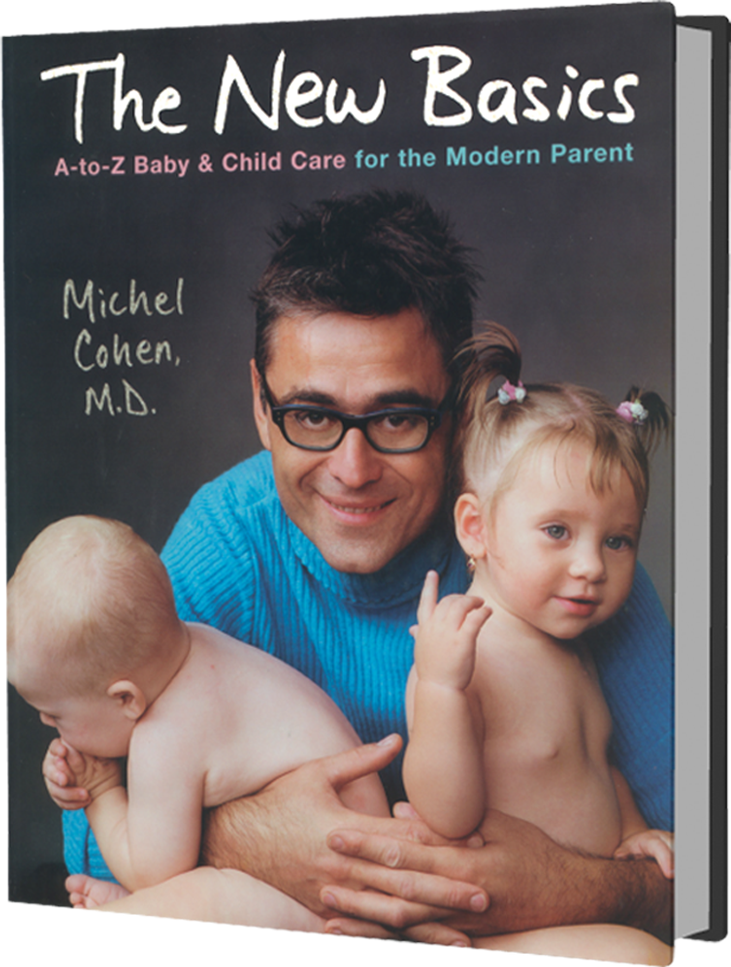
Pacifiers
Rather than bore you with lengthy psychological theories on why babies like to suck on pacifiers, I will instead offer a few practical observations. For starters, some babies systematically spit them out; if yours does, don’t waste your time reading this entry or skip to THUMB SUCKING, if that applies. For those babies who take them, pacifiers are a welcome but optional source of comfort.
Pacifiers and . . .
Nursing
Let’s first address an enduring myth. Contrary to popular belief, pacifiers do not interfere with nursing; babies are smart enough to recognize that nothing comes out of them: no milk, no formula, nada. In fact, when it comes to oral-comfort issues, a pacifier is more convenient than your finger or your breast (which can be tiring, lead to overfeeding, and sore nipples).
Addiction
Don’t be afraid you’ll make a pacifier addict out of Lucy. This was an issue in the old days when feeding on a rigid schedule used to deprive a baby of sucking, but now this is less of a problem. However, the type of pacifier can contribute to dependence. I always recommend the old-fashioned round type, because it’s harder to keep in the mouth and will fall out right after Lucy falls asleep, thus reducing dependency. The improved “orthodontic” pacifier is so perfectly molded to her mouth that it can become an integral part of her anatomy. Finally, at around three to four months, the urge to suck decreases, and Lucy can satisfy her sucking desires with her own hand or thumb. At this point, if you make the pacifier less available, Lucy will gradually lose interest in it without any weaning process.
Language
Past a few months of age, if Lucy keeps a pacifier in her mouth for a good part of the day, it can interfere with vocalization, cooing, and chattering. The same interference at the toddler stage can delay language acquisition. Physical concerns relating to malformations of the jaw and teeth are much less of a concern, since a pacifier is too soft to modify the anatomy of Lucy’s mouth.
Weaning
If, for whatever reasons, you have let Jimmy keep his pacifier for too long, you’re probably wondering how to get rid of this little piece of rubber to which he seems so addicted. It’s simple: When you’ve decided that the fateful moment has come for him to kiss his pacifier good-bye, just throw it away. If he asks for his “dummy” (as the English call it), play dumb yourself and pretend you don’t know what he’s talking about. He’ll whine the first day, and by the third he’ll have forgotten about it. If the pacifier mysteriously reappears, you’ll have an even bigger problem on your hands, because he’ll figure out how to get it back: whining.




 MEDICATION DOSAGE
MEDICATION DOSAGE

